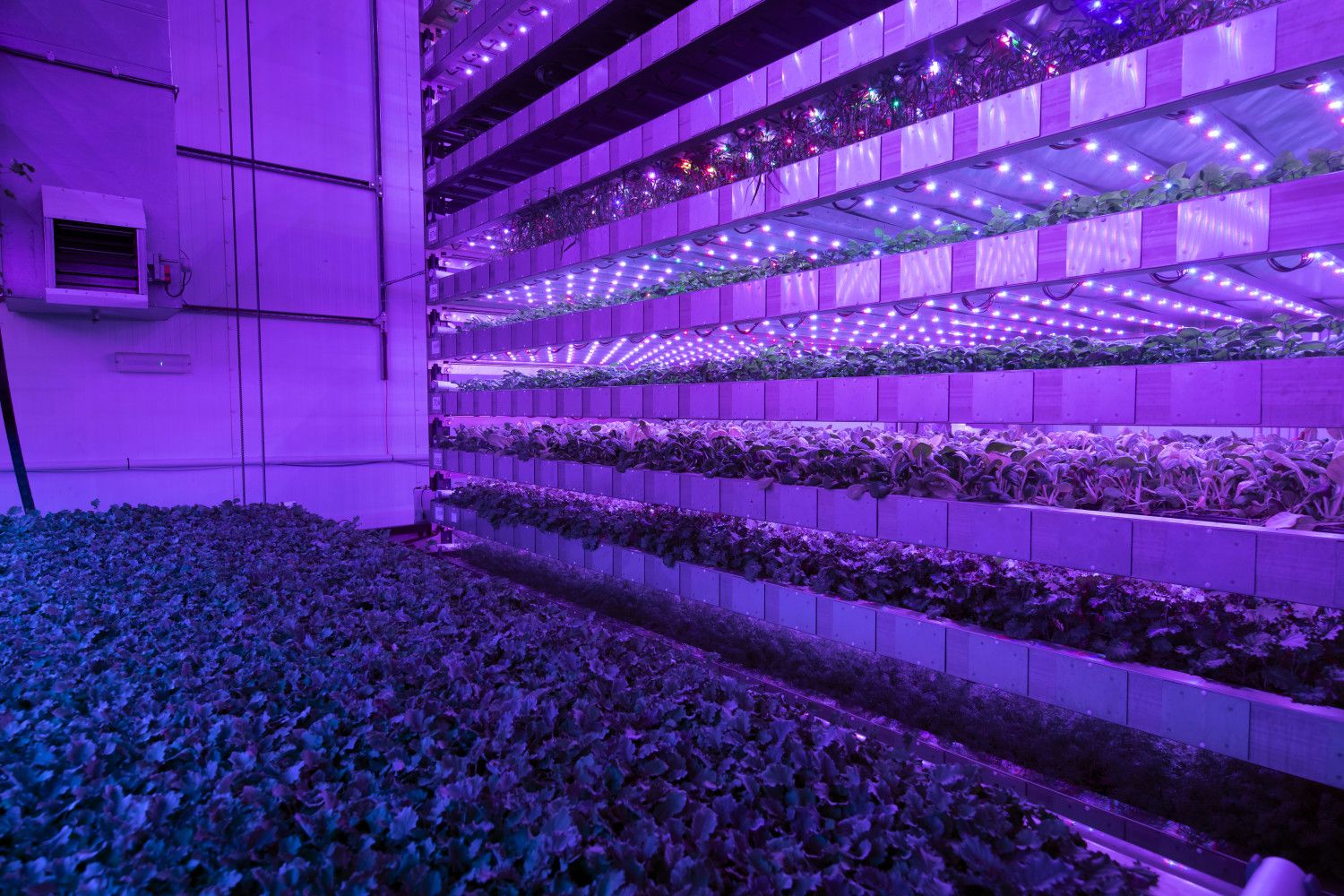Vertical farming is a pioneering agricultural concept with some serious eco-credentials that has taken root in Scotland with exciting results.
Intelligent Growth Solutions (IGS) is an Edinburgh-based agriculture-tech firm, innovating beyond the boundaries of traditional farming by growing fresh produce using no soil and significantly less water. Vertical farming has become a global industry that’s received investment of over $2.7 billion and is heralded for reducing the use of harmful chemicals in the food production and supply chain while also addressing water scarcity — using 70-80% less water than conventional farming.
Popular fruit and vegetable crops are grown, using pathogen-free coconut husks rather than soil, in stacked tower structures that pack in multiple produce varieties without taking up nearly as much space as traditional farming methods. Growing produce much closer to where it’s being eaten not only maximises quality and freshness but also reduces costs and carbon emissions linked to transportation.
IGS CEO, David Farquhar says their commitment to agricultural and environmental sustainability, whether growing nutrient rich spinach, basil or juicy strawberries, informs every decision they make.
“Our closed-loop irrigation system reduces water consumption considerably compared to open field and greenhouse farming,” explains David, “lettuce for example needs 86 litres of water to grow one kg dry weight per annum in an IGS farm, while a glasshouse in the Netherlands requires 275 litres per kg dry weight per annum”.
When it comes to energy efficiency in vertical farming, IGS is developing breakthrough technologies to reduce its carbon footprint.
“With our Cloud-based software, you can program near-infinite combinations of spectral distribution, intensity and photoperiod to offer the best results for the highest efficiency, regardless of crop type.”
Harnessing disruptive technologies
IGS’s powerful LED light management system ensures seedlings and plants receive the right amount of exposure to light depending on where they are in the growing cycle, utilising artificial intelligence algorithms to produce energy data results for the most cost-effective and energy efficient growing systems. David says, setting ambitious technology benchmarks to constantly improve customer satisfaction is a priority.
“Our Growth Tower Management System (GTMS) monitors all stages of the growth cycle. Real-time data is used to improve our Growth Recipes and provide food traceability and transparency. This is essential for our customers to meet ever-changing regulatory requirements. Our Growth Recipes are developed and refined at our Crop Research Centre and shared with our customers so that they can grow crops with predictable and consistent results.”

With cutting edge technology being used for light automation and water filtration, IGS’s vertical farming systems are controlled remotely, giving farmers total control over the growing environment, saving time and money.
“Our Growth Recipes maintain optimal conditions so that each crop is grown with as few photons as possible. Power distribution to our LEDs mean that the operation is as cost-effective as possible. With our Cloud-based software, you can program near-infinite combinations of spectral distribution, intensity and photoperiod to offer the best results for the highest efficiency, regardless of crop type”.
From buzz word to big business
Growing produce closer to where it will be consumed also means a reduced burden on the global supply chain, resulting in huge sustainability gains for Scotland's food industry. As green investors and economic analysts eye the vertical farming sector with interest, business intelligence firm IDTechEX forecasts that the future of the vertical farming industry will rise from its current value of $709 million to $1.5 billion by 2030.
"The business is firmly on a trajectory for substantial growth", adds David. “Over the coming year interest continues to come from customers across the globe”. In recent months, IGS has signed with customers in the Middle East and Europe, and its team continues to grow at pace to support international opportunities and research and development. In the last year IGS has grown its team of specialists from 42 to 94.
With the increased attention being given to vertical farming, competition is growing. “IGS cannot afford to stand still, which is why we are currently in the process of establishing a new dedicated research and development centre." IGS's new facility, which will focus on hardware development, will further support their Crop Research Centre, located at the James Hutton Institute, near Dundee.